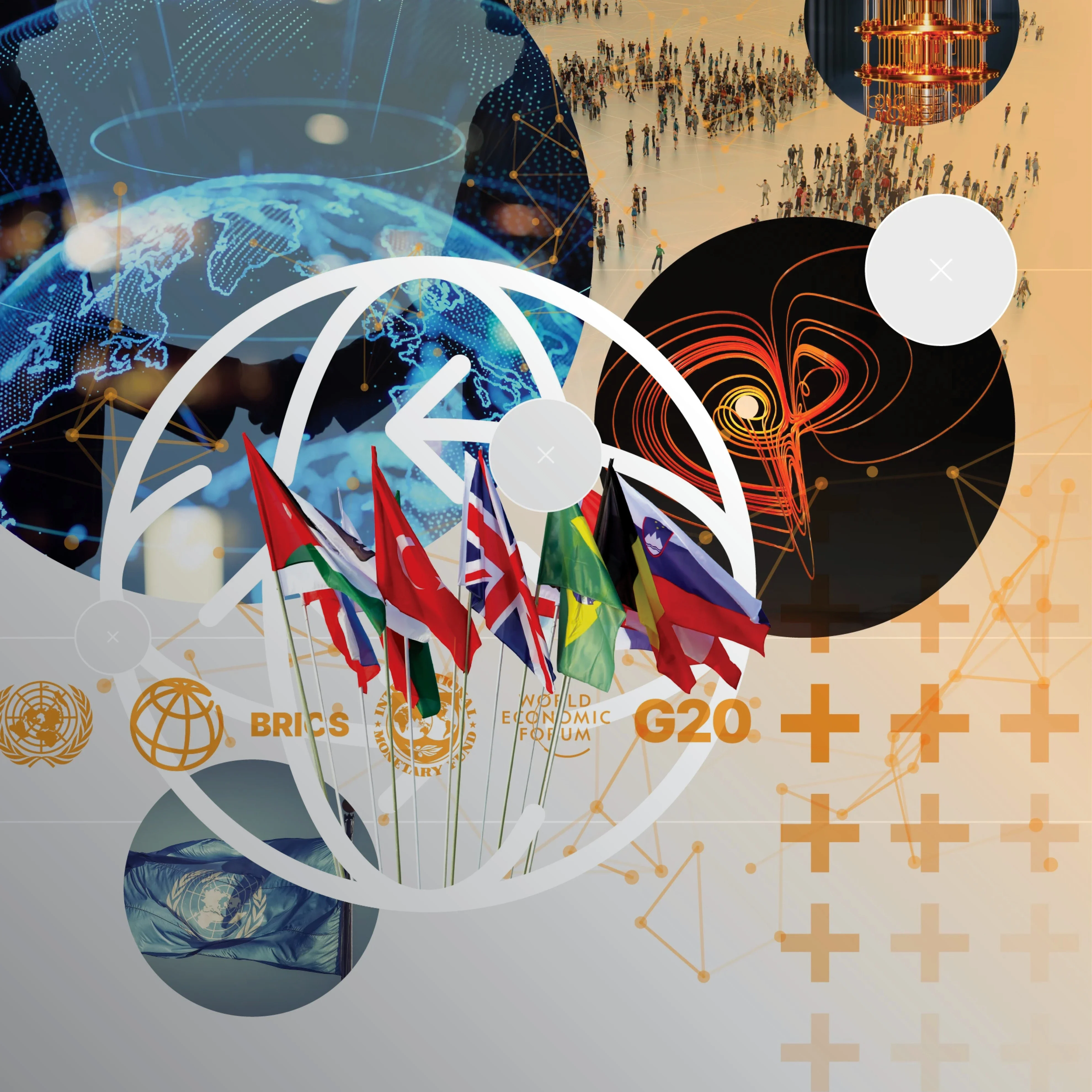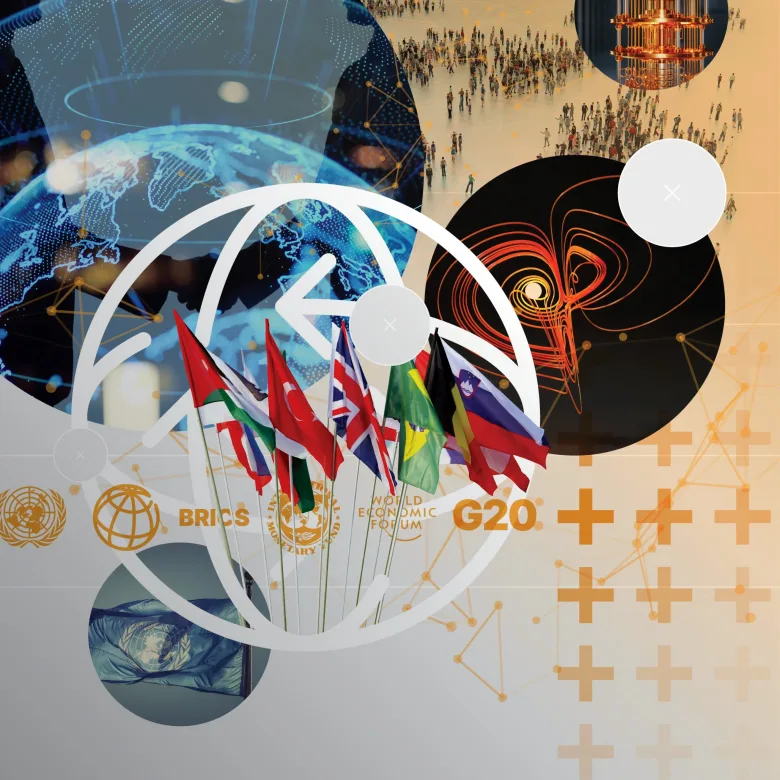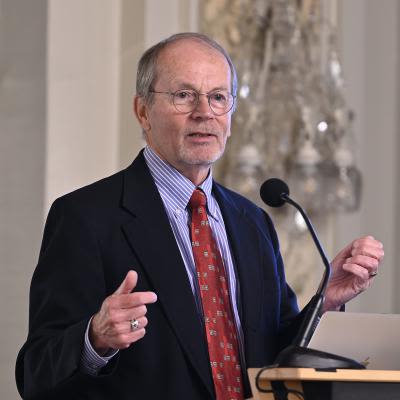Since the mid-1990s, however, there has been a significant increase in the number of informal governance arrangements and institutional forms. These include informal intergovernmental organisations (such as the G7, the G20, and BRICS) and trans-governmental initiatives (such as the Kimberly Process, which certifies conflict-free diamonds). At the same time, governance actors increasingly rely on informal practices. This is true even within FIGOs, with unspoken but implicit rules around, for example, the nationalities of those who hold key positions such as Director General or President. Lastly, informal transnational policy networks have emerged, consisting of a collection of individuals who share expertise and a common language for discussion of certain topics: this shared knowledge defines the community or network, to the exclusion of those who do not possess it. Such networks can set agendas and shape policy around both formal and informal organisations.2
The phenomenon of increasing numbers of informal intergovernmental organisations should be watched closely by those who hope to anticipate the future of multilateralism. Given the unique institutional characteristics of the UN, it is likely to remain a critical actor in multilateral global governance. Although it is a profoundly state-centric organisation — particularly around international security — its near-universal membership gives it legitimacy unrivalled by informal institutions. It is both inclusive and broadly representative, even in the Security Council, whose elected members are drawn from different regional groupings. However, the trend towards informality has several implications for its role over the next 5, 10, and 25 years.
On the one hand, informal arrangements create opportunities for more effective governance. The UN as a whole, its specialised agencies and other UN bodies increasingly address complex problems through multi-stakeholder partnerships that incorporate the expertise, operational capacity, material resources and societal connections of diverse actors. An important recent example is the Access to COVID-19 Tools Accelerator (ACT-A), in which the World Health Organization joined with diverse non-state actors such as the Bill & Melinda Gates Foundation and the Wellcome Trust to promote vaccines, treatments and other responses to the COVID-19 pandemic.
On the other hand, the proliferation of informal organisations in global governance leads to competition for authoritative influence, creating particular challenges for the UN. While it remains the first among equals in some domains (such as the protection of global intellectual property rights at the World Trade Organization), in many others (such as cyber-governance), it is merely one actor among many.
To understand the implications of the interplay between both formal and informal multilateral actors more fully, some scholars in the discipline of International Relations have made both an ontological and epistemological move away from conventional teaching and training. One new approach is termed “Quantum International Relations”, which fosters a multi-perspectivist and an open dialectical approach to multilateralism. In this approach, concepts from quantum physics — such as entanglement, superposition, uncertainty, and complementarity — are used to form new understandings of International Relations.
The quantum concepts of entanglement, superposition and complementarity have implications for how we think about the world. For example, quantum entanglement suggests that the quantum state of any particle or group of particles cannot be described independently of the state of the others, even if they are widely separated. Similarly, International Relations should incorporate ideas of constitutive relationships, that parts and wholes are intrinsically interrelated, and that they could be mutually constitutive. Centre-periphery relationships in the world system should be viewed as co-constitutive and parts of a larger whole.
Further, the principle of quantum superposition asserts that an individual particle can be in one of several different locations at any given moment, and that the most general state of existence is a combination of these different possibilities. The location of a particle can be comprehended via the concepts and theoretical formulations of wave theory or in terms of particles. The idea that one of these theoretical approaches has to be correct and the other incorrect forces an unnecessary choice: they can both be right at the same time and should be interpreted as different ways of conceptualising the same phenomenon. It might be that different formulations are equally valid simultaneously, depending on one’s vantage point. 3
Complementarity, introduced by Niels Bohr, describes the coexistence and duality of wave and particle theories, and is another metaphor that can be brought into International Relations. For instance, internationally shared histories are difficult to write and full of tensions, disputes and contradictions, but it is important to make the effort. Taken together, different, seemingly incommensurable understandings compose our world. This has important implications for how scholars from different parts of the world think about contemporary multilateralism.
A more open-ended, multidisciplinary approach can accommodate a multiplicity of contending, overlapping, incommensurable and interpenetrating world-order views, and one that leaves room for perspectives with different units, levels, ontologies and epistemologies characteristic of different approaches to inquiry.4 This shift in orientation will be critical for the future understanding of global governance and the developing field of Global International Relations, as it enables one to recognise that actions taken to balance power can be simultaneously viewed by others as acts of imperialism. This does not mean that every perspective is equally valid, but that we need to make a concerted effort to understand them on their own terms, because they may be fundamentally incommensurable. In International Relations now and in the future, it will be essential to take an empathetic understanding of the positions of others, even if you strongly disagree with them, so as to be able to engage in discourse with them “in their own language”. The point is not to legitimise such perspectives, but rather to understand them and their contradictions.
There is significant resistance to dialectical approaches within the mainstream academic community. The methods and approaches that form the core of mainstream International Relations theory remain largely (and unreflectively) Newtonian, and training programmes are structured and designed accordingly. The introduction of open-ended dialectical thinking is not only timely, but essential for advancing the study and practice of International Relations, addressing the dynamic and multifaceted nature of global governance. This unconventional understanding of International Relations should not be considered as anti-scientific, separate from largely rational and analytical-empirical social science. Instead, it recognises human affairs as a highly complicated, contingent, reflective and fallible enterprise.




